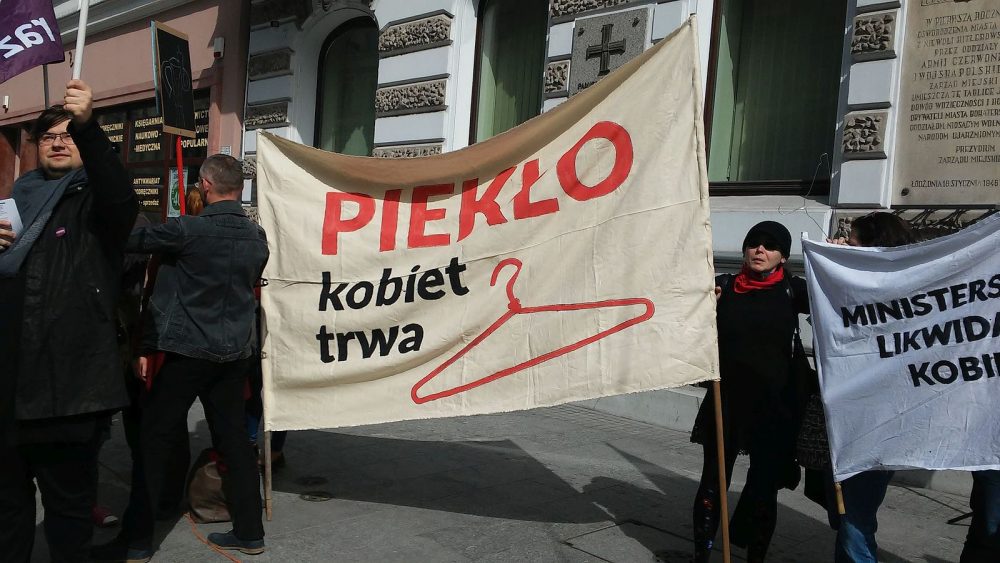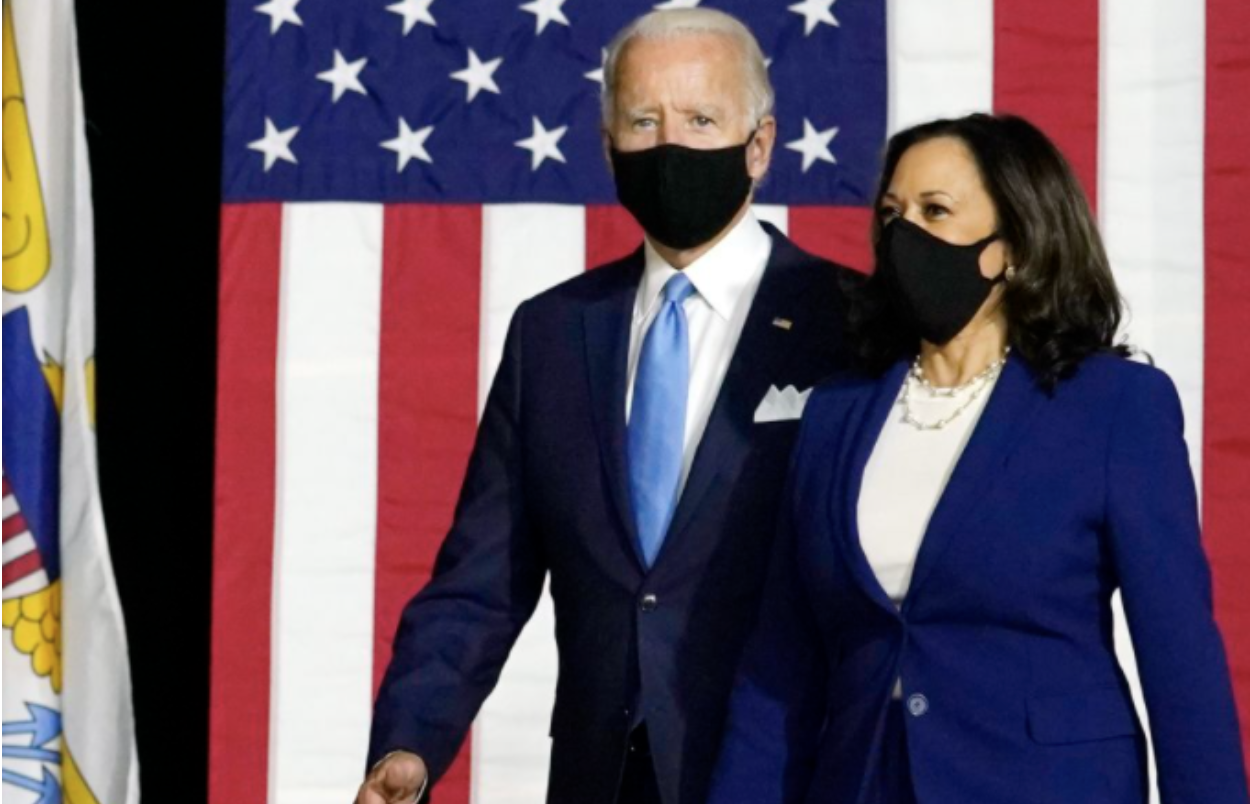
ANI BANERJEE – FEBRUARY 17TH, 2021
EDITOR: SEAN O’CONNELL
In over one hundred and fifty cities in Poland, people have been defying pandemic restrictions, gathering to march in the streets, and blocking rush-hour traffic. Similar to the US, the predominantly Christian country has lately been having disagreements surrounding their highest courts and the question of abortion, and, as in the US, it appears the anti-abortion movement in Poland is on the rise.
On October 22, Julia Przyłębska, President of the Constitutional Tribunal of Poland, and her associated members on the fifteen person court handed down a decision that sparked the above-mentioned protests. Abortion in Poland, already heavily restricted, was declared illegal, even in cases of fetal defects. Mothers carrying fetuses with missing organs or limbs in Poland will now be required to carry them to term. With the implementation of this restriction, which has yet to be signed into law, abortion is now only permissible in Poland in the case of rape, incest, or lethal threat for the mother. This means 98% of the previous years’ abortions in the country would no longer fall under the required conditions for legal abortion.
Two days previously, on October 20, Mike Pompeo, acting as a representative for the federal government, signed a non-binding global anti-abortion act alongside thirty-one other countries in condemning abortion worldwide. The signing countries represented roughly 800 million women combined, under democracies and authoritarian systems alike.
The simultaneity of these actions was no coincidence. Since 2007, twenty-eight right-wing organizations, all based in the US, have spent a combined $280 million campaigning against the rights of women and LGBT+ people around the world; $90 million of this total was spent in Europe alone. Some of these organizations are relatively recognizable, like the Cato Institute or the Heritage Foundation. However, the majority of major donors are representatives of organizations not traditionally visible in public discourse.
All twenty-eight of these groups are registered in the United States as tax-exempt nonprofits Traditionally, this classification would bar these groups from engaging in partisan political fundraising. However, a personal lawyer of the US President, Jay Sekulow, has taken charge of finding a grey zone in federal regulations to counteract these restrictions on behalf of the Trump Administration. During the 2019 impeachment trials, Sekulow was hired as the lead outside counsel for Trump’s impeachment—having previously worked for Trump in 2017 as a personal attorney during the Mueller investigations.
Sekulow has earned a reputation as a staunch ally for anti-abortion causes over three decade’s worth of work. Currently, he is the chief counsel for an organization known as the Christian Advocates Serving Evangelism (CASE). However, this organization does business and solicits donations for international anti-abortion support under a different name: the American Center for Law and Justice (ACLJ).
This distinction in fundraising is more than cosmetic. It hides the fact that there are only four members on CASE’s board: Jay Sekulow, his wife, and their two sons. Many other members of the Sekulow family, such as Gary Sekulow, Jay’s brother, and Gary’s son Adam, report working full-time jobs at both CASE and the ACJL. Gary Sekulow, for example, pockets nearly a million dollars a year from both charities combined.
CASE works like most other charities and organizations. They employ a fleet of telemarketers and call centers to solicit donations from the American public for conservative policy causes. They have previously faced legal problems for approving scripts asking respondents whether they were “retired, on a fixed income, or unemployed and willing to make a ‘small sacrificial gift of about $20.’” The organization does relatively well using this crowdsourcing tactic, spending twenty-seven dollars for every hundred raised. By comparison, top-rated charities lauded for efficiency will generally spend twenty-five dollars to raise every hundred.
Here’s where CASE diverges from more traditional conservative action groups. From 2011 to 2015, the charity collected around 229 million dollars in donations, sustained in large part by a strong promotional campaign. Sekulow’s high profile position as the president’s own lawyer has certainly helped to fundraise more recently, as he was quoted on one weekday talk show saying, “Let me take off the hat of the president’s lawyer and put on the ACLJ hat,” before soliciting public donations. The ACLJ is the organizational title under which CASE does business.
14.4 million dollars were spent by the ACLJ in influencing European laws since 2008, aimed primarily at limiting access to abortion and contraception and rolling back LGBTQ+ protections. The ACLJ used the money acquired through fundraising phone banking to intervene in cases including the defense of Italy’s position against same-sex marriage and Polish stances against divorce and abortion. The European wing of the ACLJ (ECLJ) was even granted leave by the European Court of Human Rights (ECHR) to intervene in the case of B.B. v. Poland: the exact case that, in late October, lead to a decision on restricting abortion rights in the case of fetal deformity.
The ACLJ, as a non-profit, has to report its financial dealings to the IRS. However, another organization heavily involved in Europe as well, the Billy Graham Evangelistic Association, is registered as a tax-exempt organization: an association of churches.
We know that the Billy Graham Evangelical Association has spent over 23 million dollars in Europe alone, but, due to the fact that churches are not required to make financial filings to the IRS, we don’t know more than that.
The extent of the influence American non-governmental organizations have exerted in other countries, not just in Europe but across the world, is unknown. It’s unknown, specifically because the US’s system regarding non-profits registered in the country is patchy, with often little to no oversight.
The influence of partisan nonprofit financing used to be a problem that was discussed only in domestic settings. But if one thing has become clear, in an increasingly interconnected market, even donations should be watched. Solicitations from average Americans, twenty-dollar-bills from various people across the country, can be aggregated in the effort to influence policy across the world, with often little recourse for those affected.
Featured Image Source: Wikimedia Commons
Disclaimer: The views published in this journal are those of the individual authors or speakers and do not necessarily reflect the position or policy of Berkeley Economic Review staff, the Undergraduate Economics Association, the UC Berkeley Economics Department and faculty, or the University of California, Berkeley in general.



